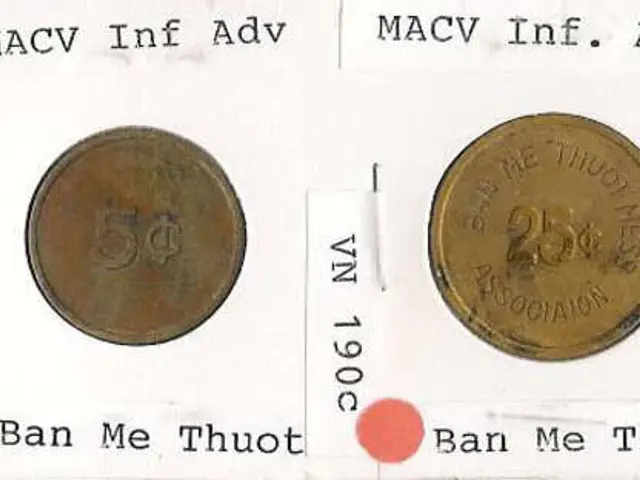Mastering the Path to Wealth Independence: A Step-by-Step Approach
Financial Independence: Unleashing the Potential of a Stress-Free Future
Financial freedom is a widely debated concept, requiring clarification to fully grasp its significance. Essentially, financial freedom signifies the ability to live life on one's own terms, with the peace of mind that financial implications of decisions will not pose an undue burden. This involves possessing sufficient resources to cater to essential needs and discretionary expenses, empowering one to pursue passions, take calculated risks, and enjoy a preferred lifestyle.
The significance of financial freedom extends beyond merely accumulating wealth. It provides a sense of security, stability, and freedom – ensuring that unexpected circumstances are manageable without incurring undue stress or debt. Financial freedom enables the realization of aspirations, whether it's globe-trotting, entrepreneurial ventures, or an early retirement, as the necessary funds are available to facilitate such pursuits.
Moreover, financial freedom fosters a sense of autonomy and self-reliance. It frees individuals from financial dependence on others, allowing them to make decisions based on personal interests, rather than being beholden to external influences. In essence, financial freedom transcends the simple accumulation of wealth, providing a means to live life with financial constraints removed.
Here are key strategies for achieving financial freedom:
Creating a Budget and Setting Financial Goals
Establishing a budget is the first crucial step towards financial freedom. It provides insight into income and expenditure, making it possible to identify areas where savings can be increased. By setting a budget, one can ensure a lifestyle that aligns with means, eliminating unnecessary expenses. Consequently, setting financial goals becomes achievable, offering direction and motivation for the financial journey.
When setting goals, it's essential to employ the SMART method – making goals Specific, Measurable, Achievable, Relevant, and Time-bound. This ensures that goals are practical and attainable within a given timeframe. Examples of financial goals could be saving a certain percentage of income each month, paying off specific debt by a specific date, or increasing investment returns by a specific percentage.
Building an Emergency Fund and Managing Debt
Creating an emergency fund is vital for ensuring a financial safety net in the face of unexpected circumstances, such as medical emergencies or job loss. Aim for saving three to six months' worth of living expenses in an easily accessible savings account. Managing debt efficiently is equally crucial. Prioritize paying off high-interest debt and consider debt consolidation if possible, to save on interest payments. Refinancing low-interest loans can also yield cost savings in the long run.
Investing for the Future: Understanding Stocks, Bonds, and Real Estate
Investments play a critical role in financial growth and freedom. Researching and understanding different investment vehicles, such as stocks, bonds, and real estate, is crucial for creating a diversified portfolio that can generate long-term returns. Diversification spreads the risk, maximizing returns over time.
Maximising Income: Side Hustles, Passive Income, and Career Advancement
Maximizing income is key to accelerating progress towards financial freedom. Actively seeking additional income sources, such as freelancing, online sales, or rental income, can supplement regular income. Exploring passive income opportunities like dividends and royalties can also provide ongoing income with minimal effort. Career advancement through education, training, or job changes can lead to increased earnings, enabling faster progress towards financial independence.
Protecting Your Financial Future: Insurance and Estate Planning
Protecting one's financial future should not be neglected. Implementing adequate insurance coverage for potential risks like illness, disability, or death, helps ensure peace of mind. Estate planning is equally critical, specifying how assets are to be managed and distributed after death. This may involve creating a will, establishing trusts to protect assets for future generations, or designating beneficiaries for retirement accounts and life insurance policies.
Staying on Track: Monitoring Your Progress and Adjusting Your Plan
Staying focused on the path to financial freedom requires regular monitoring and adjusting one's plan as needed. Continually tracking income, expenses, savings, and investments ensures that one remains on course towards achieving financial independence. Flexibility is key, as life circumstances may necessitate changes in budget, savings goals, or investment strategies.
By embracing these strategies, one can take significant strides towards financial freedom, gaining the financial security, freedom, and empowerment that comes with it.
- Prioritizing financial freedom can enable individuals to pursue their personal interests without financial dependence on others, embodying a life free from undue stress or debt and empowering them to invest wisely for their future and their passions.
- Implementing strategies such as creating a budget, setting financial goals, building an emergency fund, managing debt, investing, maximizing income, protecting one's financial future, and monitoring progress are essential steps towards achieving financial freedom, fostering a secure, fulfilling, and stress-free future.





